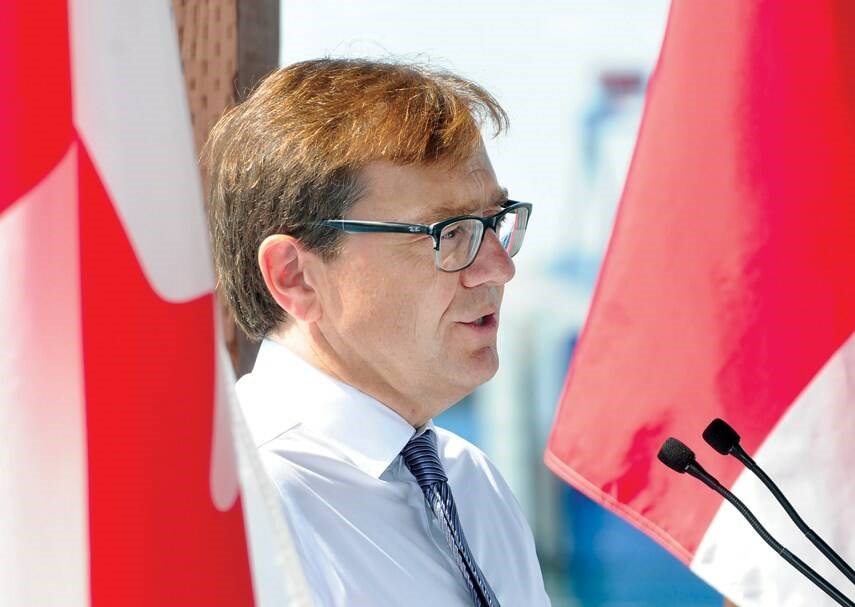Canada’s Minister of Energy and Natural Resources Jonathan Wilkinson has travelled south of the border to advocate for unity, as the country faces potentially devastating tariffs from the incoming Donald Trump White House.
On Thursday, North Vancouver MP Wilkinson was returning from his two-day trip in Washington, D.C., where he met with Republican legislators and other leaders, to pitch them that an alliance on energy and critical minerals is in the best interests of both Canada and the U.S.
His trip took place under the threat of 25-per-cent tariffs from President-elect Trump, a policy that could spark a trade war costing British Columbia's economy an estimated loss of $69 billion between 2025 and 2028.
Meanwhile, B.C. Premier David Eby said the province could hit back by restricting trade of critical minerals, such as refined zinc and lead, which are used to make products like car batteries and night-vision goggles.
But Wilkinson said he was spreading a message of unity – that an alliance between the neighbouring countries is the best way to achieve economic dominance and national security, while mounting an offence against China and other international adversaries.
“A trade war between our two countries, who have historically been very close friends and allies on the world stage, would make life more expensive for Americans and Canadians,” he said.
On Tuesday and Wednesday, Wilkinson said he had positive meetings on Capitol Hill with Senator Ted Cruz of Texas, Senator John Hickenlooper of Colorado and Senator Kevin Cramer of North Dakota.
He pitched to them a Canada-U.S. alliance that “would see us integrate and advance North American energy and mining industries to reduce reliance on unstable or unfriendly actors.”
Wilkinson also met with energy and mining executives to hear their concerns and to emphasize Canada’s importance.
“Rather than fight, we can work together as part of an alliance to create even more jobs, keep costs down for people, and ensure North America supplies the world with the energy and critical minerals it needs,” he said.
“Here in B.C., for example, we power American homes with hydroelectricity, and our critical minerals processing – such as the [Teck Resources] facility in Trail, B.C. – produces germanium, which is sold to the U.S. to be used in defence applications,” Wilkinson said.
Trade war could spike gas pump prices in U.S. Midwest by 75 cents a gallon, Wilkinson says
During a speech Wednesday at the Wilson Centre, a Washington, D.C.-based international think tank, Wilkinson spoke of imported Canadian electricity, natural gas and crude, underscoring the negative impacts a trade war could have on U.S. citizens.
“In the Midwest, for example, gas prices could increase by up to 75 cents a gallon with the imposition of tariffs,” he said.
Despite the threat of a looming trade war, Wilkinson expressed optimism about future co-operation.
“I had a series of positive conversations during my trip, and I will continue to work hard to achieve positive outcomes for Canadians and Americans alike,” he said.
[email protected]
twitter.com/nick_laba
@nicklaba.bsky.social




